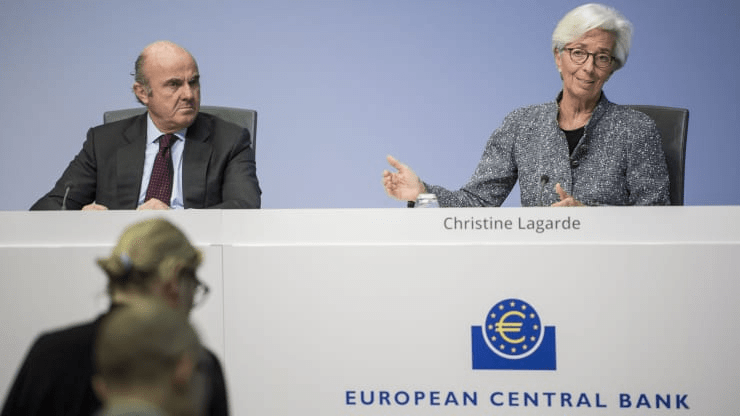Central bank policy in large part is based on signaling, or verbal interventions. The famous “whatever it takes” comment from former European Central Bank President Mario Draghi is the perfect example. But words alone can also fail to provide a suitable outcome. In recent weeks, ECB officials have been vocal in calling the rise in bond yields “unwarranted tightening” or “a situation which we have to monitor closely.” There is no unanimity in the ECB’s Governing Council as to whether financing conditions are at risk of turning south with the strong rise in yields. And market participants would like to better understand the ECB’s possible responses to this, with the central bank due to meet this week.

In recent weeks, yields on fixed income assets (especially on U.S. Treasurys) have risen due to a belief that inflation will pick up following the coronavirus pandemic and lead to a tightening of monetary conditions. Higher yields mean governments who borrow face higher costs when servicing their debts, but it’s also knocked stock markets with major firms also having to spend more on their debt obligations. When the euro zone’s central bank decided to add “maintaining favorable financing conditions” to its targets back in December, there was no clear understanding of what that actually meant. Inside the Governing Council there was a divergence on the interpretation of the term, according to sources close to the decision makers.
Recent inflation data in the region has been better than expected with energy prices driving the increases. But also for the full year, there is a clear reflationary push due to the reopening of the economies after Covid-19 lockdowns. In the meantime, data published on Monday showed that the ECB’s bond holdings in its pandemic stimulus program increased only by 11.9 billion euros ($14.1 billion) in the week to March 3, down from 12 billion euro a week earlier and below the 18.1 billion euro average since the program started. This effectively means its bond buying is slowing somewhat, and putting further upward pressure on debt yields in the region. Yields have an inverse relationship with a bond’s price.
Surging yields are creating problems for the ECB. And it’s split on what to do, CNBC, Mar 11